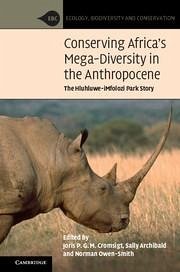
Human-Nature Interactions in the Anthropocene
Potentials of Social-Ecological Systems Analysis
Herausgeber: Glaser, Marion; Ratter, Beate M. W.; Krause, Gesche
Versandkostenfrei!
Versandfertig in 1-2 Wochen
190,99 €
inkl. MwSt.

PAYBACK Punkte
95 °P sammeln!
This book deals with the potentials of social-ecological systems analysis for resolving sustainability problems. Contributors relate inter- and transdisciplinary perspectives to systemic dynamics, human behavior and the different dimensions and scales. With a problem-focused, sustainability-oriented approach to the analysis of human-nature relations, this text will be a useful resource for scholars of human and social ecology, geography, sociology, development studies, social anthropology and natural resources management.












